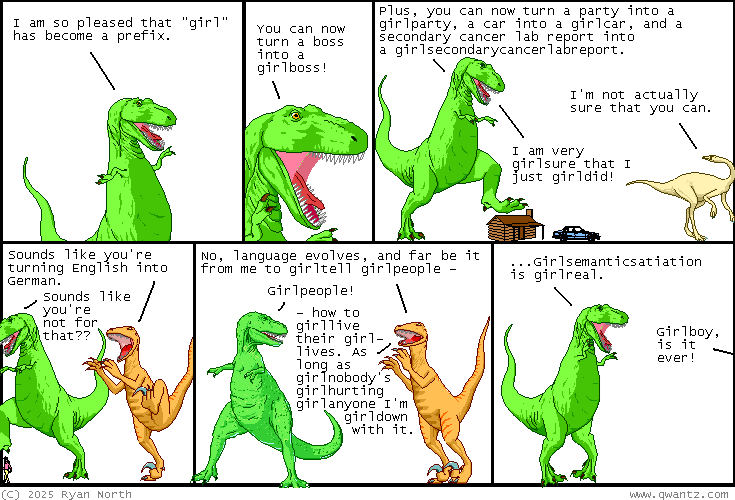Yet another sinographic stumbling block for Chinese modernization
After coming face to face with the unavoidable debacles inherent in mechanical Chinese typewriters (not to mention many other pitfalls of the writing system), Language Log readers will not be surprised to learn that sinographs were not well suited for telegraphy:
Read the rest of this entry »
Can't even
In the comments on "Cant-idates" (11/12/2025), there was some back-and-forth about how much phonetic residue Americans generally leave of the word-final /t/ in sequences where can't is immediately followed by a vowel-initial word.
In defense of the answer "not much", I pulled three examples of "can't even" (literally) at random from the NPR podcast corpus I've used in previous posts (and in teaching corpus phonetics).
Read the rest of this entry »
Double Dutch
This video begins with two Dutch sayings:
There's a saying in Dutch: "God schiep de Aarde, maar de Nederlanders schiepen Nederland".
Another saying in Dutch is: "Wij smachten naar achtentachtig prachtige nachten bij achtentachtig prachtige grachten".
Today's program is about how the Netherlands picked a fight with the sea, and won.
Read the rest of this entry »
Northeastern topolect expressions
All places in China have topolect terms, some more than others, and some are more influential outside of their own region than others. One regional variety whose speakers create numerous memorable expressions they are proud of is Dōngběihuà 東北話 ("Northeastern topolect"). I was inspired to make this post after reading a collection of twenty Northeasternisms.
I showed the collection to Diana Shuheng Zhang, who is an authentic Northeasterner. Diana not only translated and explained the entire collection, she added twenty more, for a total of forty, commenting, "Can't stop laughing. Hope everybody enjoys our native expressions. :)"
Please note that I (VHM) have added all the pinyin romanizations and a few literal translations). Because some of the characters are unusual and I'm not a Northeastern speaker, I cannot guarantee the accuracy, especially down to the tones (and their sandhi), of all the transcriptions I have supplied. Pay attention to Diana's valuable phonological notes.
Read the rest of this entry »
"Cant-idates"
The "what we do" page for the CANTWINVICTORYFUND starts by explaining that they "Run Cant-idates to lose spectacularly in gerrymandered districts".
Read the rest of this entry »
Abstand und ausbau, part 2
The first part of this debate, "Abstand und ausbau" (10/28/25), was so spirited and prolonged, and has recently moved on to significant new ground, that I've decided to launch this part 2.
Before commenting here, please go back and review what was said in the previous o.p. and the subsequent comments thereto, some of which are quite substantial. Here I copy one of the recent observations in the first thread that has not yet been adequately responded to there:
Read the rest of this entry »
Sumerian double negative (and fart joke)
“Something which has never occurred since time immemorial: A young woman did not fart in her husband’s embrace.”
As quoted in Between Two Rivers: Ancient Mesopotamia and the Birth of History (W.W. Norton, 2025), by Moudhy Al-Rashid. This is an excellent introduction to how much we can learn about ancient Mesopotamia from the thousands of cuneiform stamped tablets often just tossed away as building fill.
Read the rest of this entry »
Hangul as a global alphabet manque
Best 16:34 introduction to the Korean alphabet you'll ever encounter — by Julesy, of course:
Read the rest of this entry »
Strange prescriptions
An email recently informed me that the American Psychological Association has created an online version of the APA Style Guide (technically the Publication Manual of the American Psychological Association, Seventh Edition, and that Penn's library has licensed it. A quick skim turned up a prescriptive rule that's new to me, forbidding the use of commas to separate conjoined that-clauses unless there are at least three of them:
Read the rest of this entry »




